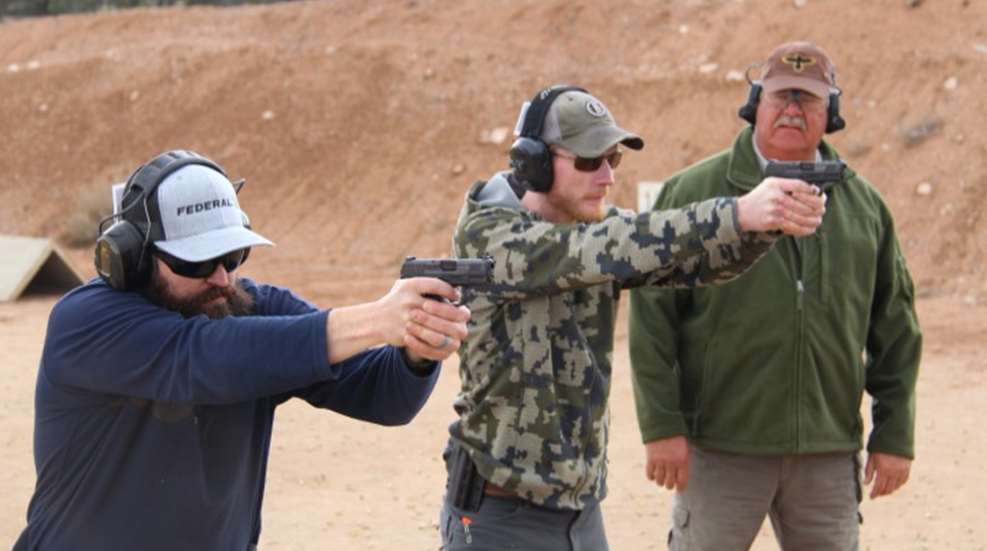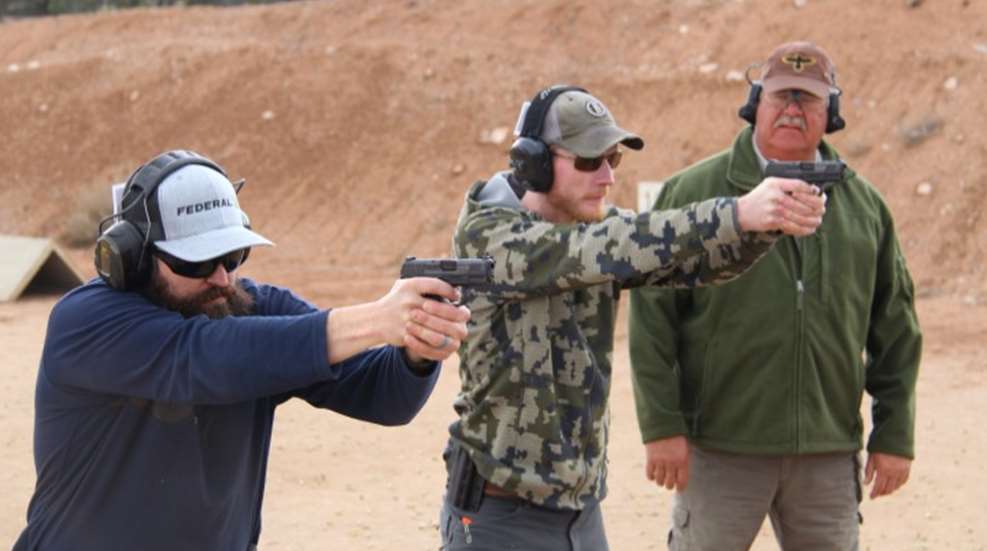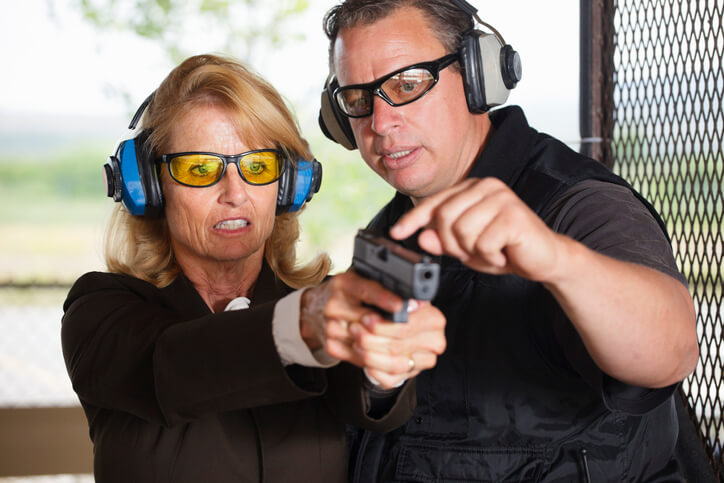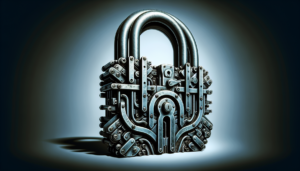
When it comes to choosing a self-defense firearm instructor, there are several important factors that should be carefully considered. With personal safety at stake, finding a competent and reliable instructor is essential to ensuring that you receive the proper training and guidance. From their experience and qualifications to their teaching style and philosophy, this article will explore the key factors that should be taken into account when selecting a self-defense firearm instructor.
Experience and Qualifications
When choosing a self-defense firearm instructor, one of the crucial factors to consider is their experience and qualifications. You want an instructor who has the necessary knowledge and skills to educate you effectively on self-defense and firearm usage.
Certifications
An instructor’s certifications showcase their commitment to their profession and demonstrate that they have undergone rigorous training to attain specific qualifications. Look for instructors who are certified by renowned organizations such as the National Rifle Association (NRA) or have undergone extensive training programs recognized by law enforcement agencies. These certifications ensure that the instructor possesses the knowledge and expertise necessary to teach self-defense effectively and safely.
Law enforcement or military experience
Instructors with law enforcement or military experience often bring a wealth of practical knowledge and real-world scenarios to their training sessions. Their experience in high-pressure situations and their understanding of tactical strategies can significantly enhance your learning experience. When considering an instructor, inquire about their background and whether they have served in law enforcement or the military, as this can be a valuable asset in imparting practical self-defense skills.
Teaching experience
While an instructor’s personal experience is important, their ability to effectively communicate and teach others is equally crucial. Teaching experience indicates a level of professionalism, organization, and the ability to adapt teaching methods to various learning styles. Instructors with a proven track record of successfully instructing and guiding students through self-defense training will likely be more capable of helping you achieve your goals.
Teaching Style and Approach
The teaching style and approach employed by an instructor can greatly impact your learning experience and the effectiveness of the training. Understanding the balance between theory and practical training, individual and group instruction, and adaptability to different learning styles is essential when evaluating potential instructors.
Theory vs. practical training
A reputable self-defense firearm instructor should strike a balance between theoretical knowledge and practical application. While theory provides the necessary foundation, practical training allows you to apply the acquired knowledge in realistic scenarios. Look for instructors who incorporate hands-on exercises, live-fire drills, and simulated real-life situations into their training sessions. This approach ensures that you not only understand the concepts but also develop the necessary muscle memory and decision-making skills needed in high-stress situations.
Individual vs. group instruction
Every student has unique needs and learning styles, so it’s important to consider an instructor’s ability to cater to individual students versus teaching in a group setting. Individual instruction allows for personalized attention, allowing the instructor to focus on your specific strengths, weaknesses, and goals. On the other hand, group instruction can provide additional benefits such as peer interactions, observation of others’ techniques, and learning from shared experiences. Finding an instructor who can balance these two approaches can be beneficial in enhancing your learning experience.
Adaptability to different learning styles
People learn in different ways, and an instructor who can adapt their teaching style to accommodate various learning styles can be invaluable. Look for instructors who are adept at using visual aids, verbal explanations, and hands-on demonstrations to cater to different learners. Effective instructors understand that each student has their own preferred learning style, whether it be visual, auditory, or kinesthetic, and strive to create a conducive learning environment for all.

This image is property of www.nrafamily.org.
Knowledge and Expertise
A self-defense firearm instructor’s knowledge and expertise in various aspects of self-defense and firearms are pivotal to their effectiveness. Evaluating an instructor’s understanding of firearm laws and regulations, firearm types and functionality, and self-defense strategies and tactics is essential for making an informed choice.
Firearm Laws and Regulations
Placing emphasis on safety and legality, an instructor should have a comprehensive understanding of firearm laws and regulations. They should be able to educate you on the proper storage, transport, and use of firearms in compliance with local, state, and federal laws. Awareness of these laws is crucial to ensure that you are being taught responsible and lawful self-defense practices.
Firearm Types and Functionality
A knowledgeable instructor should possess in-depth knowledge of various firearm types, their functionality, and their suitability for different situations. They should be able to educate you on the pros and cons of different firearms, as well as their appropriate applications. Additionally, discussing factors such as caliber, recoil, and ergonomics will help you make informed decisions when selecting a self-defense firearm.
Self-defense Strategies and Tactics
An instructor should possess expertise in self-defense strategies and tactics to provide you with a well-rounded self-defense education. Look for instructors who can impart practical knowledge on situational awareness, threat assessment, defensive shooting techniques, and physical techniques for self-defense. The ability to teach effective self-defense strategies that go beyond firearm usage ensures that you gain a comprehensive understanding of personal safety.
Reputation and References
When selecting a self-defense firearm instructor, it is essential to consider their reputation and references. Evaluating their word-of-mouth recommendations, online reviews and testimonials, and success stories and references can provide valuable insights into their teaching capabilities and the satisfaction of their previous students.
Word-of-mouth recommendations
Ask for recommendations from individuals who have undergone training with the instructor you are considering. Hearing about their personal experiences and the results they achieved can help you gauge the instructor’s teaching methods, effectiveness, and overall reputation. Positive word-of-mouth recommendations are often indicative of a trustworthy and reliable instructor.
Online reviews and testimonials
In today’s digital age, online reviews and testimonials can offer a vast amount of information about an instructor’s reputation and teaching abilities. Browse through reputable review platforms and educational forums to gain insights from those who have trained with the instructor in question. Positive reviews and testimonials from a diverse range of individuals can instill confidence in their abilities and teaching effectiveness.
Success stories and references
Request references from the instructor to connect with past students who have successfully completed their training. Speaking directly with individuals who have acquired self-defense skills under their guidance can help you assess the instructor’s ability to tailor their instruction to different individuals and their commitment to helping students achieve their goals. Success stories and personal references can provide additional assurance of the instructor’s competency and professionalism.

This image is property of www.shootingclasses.com.
Safety Protocol
Safety should be a top priority when it comes to firearms training. An instructor who prioritizes safe handling and storage practices, follows range safety procedures, and provides emergency response training ensures that you receive training in a controlled and secure environment.
Safe handling and storage practices
A reputable instructor should emphasize safe firearm handling and storage practices throughout the training. This includes teaching you how to properly grip and control a firearm, unload and clear a firearm, and safely store firearms when not in use. By emphasizing the importance of responsible firearm ownership, the instructor demonstrates their commitment to ensuring that you develop safe habits and maintain a secure environment.
Range safety procedures
If live-fire training is conducted at a shooting range, the instructor should enforce strict range safety procedures. This includes enforcing the use of appropriate safety equipment, maintaining control over the range environment, and ensuring that all participants are familiar with and adhere to the range rules. By prioritizing range safety, the instructor creates an environment where you can learn and practice your skills without compromising safety.
Emergency response training
In an unfortunate event where a self-defense situation escalates, an instructor who provides emergency response training can be invaluable. This training may include teaching you how to react in high-stress situations, practicing proper communication with law enforcement, and understanding the legal and ethical implications of using lethal force. By preparing you for potential self-defense scenarios, the instructor ensures that you are equipped with the necessary knowledge to make informed decisions and act responsibly if the need arises.
Training Facilities and Equipment
The quality of the training facility, availability and condition of firearms and equipment, and the inclusion of simulated training scenarios can greatly impact your training experience and preparedness for real-life situations.
Quality of training facility
A well-equipped and maintained training facility creates an environment conducive to effective learning. Look for instructors who conduct their training in facilities that prioritize safety, cleanliness, and functionality. The training area should provide ample space, appropriate lighting, and a range of training aids to facilitate hands-on exercises. A high-quality training facility demonstrates the instructor’s commitment to providing you with the best training experience possible.
Availability and condition of firearms and equipment
When assessing an instructor, consider the availability and condition of firearms and other equipment used in training. Having access to a variety of firearms allows you to gain familiarity with different models, enhancing your overall firearm knowledge. The equipment should be well-maintained and in good working condition to ensure that your training proceeds smoothly. An instructor who prioritizes the state of their equipment demonstrates their commitment to providing you with a reliable and comprehensive training experience.
Simulated training scenarios
Training that incorporates simulated real-life scenarios can significantly enhance your ability to respond effectively in self-defense situations. Look for instructors who utilize simulated training scenarios, such as shoot/don’t shoot simulations or force-on-force exercises, to replicate the stress and decision-making involved in real-life encounters. These scenarios allow you to apply your training in a realistic and controlled environment, providing invaluable experience and enhancing your confidence and readiness.

This image is property of www.sixmaritime.com.
Course Curriculum
A well-designed and comprehensive course curriculum is crucial for effective self-defense firearm training. Assess an instructor’s course curriculum to ensure that it covers all essential topics, includes legal and ethical considerations, and fosters skill-building and progression.
Comprehensive coverage of essential topics
The curriculum should encompass all essential topics related to self-defense and firearm usage. This includes firearm safety, marksmanship fundamentals, defensive shooting skills, situational awareness, threat assessment, and legal considerations. Ensure that the curriculum addresses both the theoretical and practical aspects of these topics to provide you with a holistic understanding of self-defense firearm usage.
Inclusion of legal and ethical considerations
An instructor who incorporates legal and ethical considerations into their curriculum demonstrates a commitment to responsible and lawful self-defense practices. Understanding the legal and ethical boundaries of self-defense is crucial to ensure that you make informed decisions in high-stress situations. The curriculum should cover topics such as self-defense laws, use of force, justifiable force, and the legal implications of defensive actions.
Progression and skill-building
A well-structured curriculum should be designed to progressively develop your skills and build upon previous lessons. Look for instructors who outline clear learning objectives for each lesson and provide opportunities for skill-building and refinement. The curriculum should introduce new concepts, techniques, and scenarios gradually, allowing you to progress at a comfortable pace while continuously challenging you to improve.
Cost and Value
Considering the cost of training in relation to the value it provides is important when choosing a self-defense firearm instructor. Evaluate the affordability and pricing options offered, examine the perceived value for money, and consider any additional benefits or resources provided.
Affordability and pricing options
While cost should not be the sole determining factor in choosing an instructor, it is essential to consider your budget and the affordability of the training. Compare the pricing options offered by different instructors, keeping in mind that factors such as instructor experience, quality of training, and additional resources may contribute to variations in price. It is advisable to seek a balance between affordability and the overall value you will receive from the training.
Value for money
Evaluate the perceived value for money when reviewing potential instructors. Consider the comprehensiveness of the training, the reputation and experience of the instructor, the quality of the training facility and equipment, and any additional resources or benefits provided. Investing in high-quality training that equips you with practical skills and knowledge is often more valuable in the long run than selecting the cheapest option available.
Additional benefits or resources
Some instructors may offer additional benefits or resources as part of their training packages. These could include access to online learning materials, discounted range time, or ongoing support after completing the training. Assess whether these additional resources align with your needs and goals, as they can enhance the overall value and effectiveness of the training.

This image is property of www.usacarry.com.
Availability and Scheduling
The availability and scheduling of training sessions can greatly impact your ability to attend and complete the training. Flexibility, class sizes, and accessibility should be considered when selecting a self-defense firearm instructor.
Flexible scheduling
Look for instructors who offer flexible scheduling options to accommodate your availability. This could include evening and weekend courses or customized training sessions tailored to your specific needs. Flexible scheduling allows you to pursue the training without major disruptions to your daily routine, ensuring that you can commit fully to the learning process.
Class sizes and availability
The instructor-to-student ratio and the availability of slots in training sessions are crucial factors to consider. Smaller class sizes allow for greater individual attention and interaction with the instructor. Inquire about the maximum number of students per class to ensure that you receive adequate guidance and feedback. Additionally, check the availability of slots in upcoming training sessions to ensure that you can enroll within your desired timeframe.
Accessibility for location and transportation
Consider the accessibility of the training location in relation to your residence or workplace. Selecting an instructor who is geographically convenient minimizes travel time and logistical challenges. Determine if the training facility is easily accessible by public transportation or if there is ample parking available. Accessibility considerations contribute to a smoother and more convenient training experience.
Student Support and Resources
Receiving support and having access to additional resources can greatly enhance your learning experience and provide ongoing assistance after completing the training. Evaluate an instructor’s commitment to student support and the availability of additional resources.
Post-training support
An instructor who offers post-training support demonstrates a commitment to your continued growth and development in self-defense. This could include follow-up sessions, assistance with refining techniques, or answering any questions that arise after completing the training. Post-training support ensures that you have ongoing access to the instructor’s guidance and expertise as you continue to hone your skills.
Access to additional resources
Consider whether an instructor provides access to additional resources, such as online learning materials, instructional videos, or recommended readings. These resources can serve as valuable references and aids in reinforcing the training received. Access to supplementary materials allows you to continue learning outside of the training sessions and provides opportunities for further knowledge acquisition.
Networking opportunities
Networking opportunities presented by the instructor can be advantageous in connecting with like-minded individuals and industry professionals. Look for instructors who facilitate networking events, workshops, or conferences where you can interact with other students, instructors, or experts in the field. These networking opportunities can foster a sense of community and provide additional learning and growth opportunities beyond the training itself.
In conclusion, choosing a self-defense firearm instructor requires careful consideration of their experience and qualifications, teaching style and approach, knowledge and expertise, reputation and references, safety protocol, training facilities and equipment, course curriculum, cost and value, availability and scheduling, and student support and resources. By evaluating these factors and finding an instructor who aligns with your needs and learning style, you can embark on a comprehensive and effective self-defense firearm training journey. Remember, investing in the right instructor not only equips you with the necessary skills for self-defense but also sets the foundation for responsible and lawful firearm ownership.

This image is property of defensivetrainingsolutions.com.






